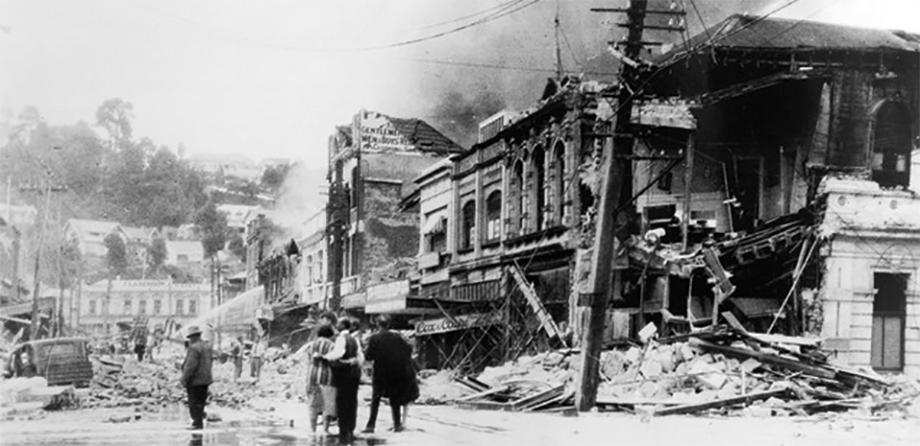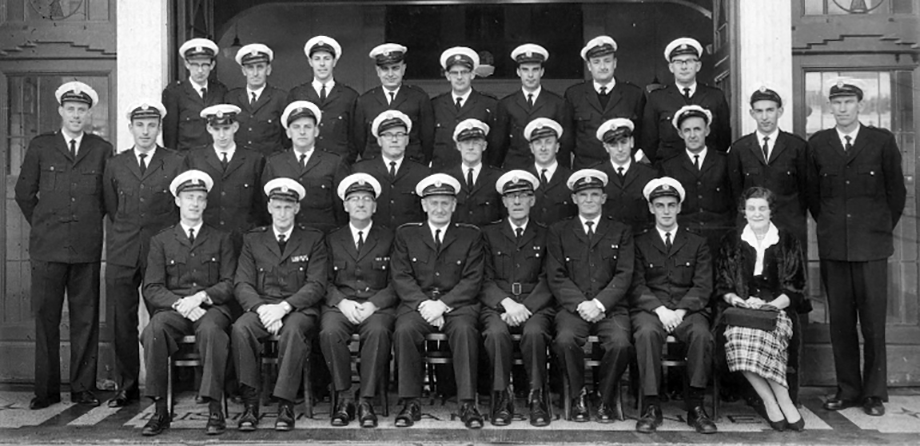Our history
Our history
1930s
1930s
Wellington Free head to help devastated Napier
At 10:47am on 3 February 1931, a 7.9 earthquake struck Napier and its surrounding districts, killing 256 people and injuring many more. It remains New Zealand's deadliest natural disaster.

Remembering the good times
When you're born in an ambulance it seems only natural to become an ambulance officer!

"In the early hours of a cold and wet Wellington morning an ambulance was dispatched to the then-distant suburb of Waterloo. The task was to pick up a pregnant woman and get her to St Helens Hospital in Wellington before she had her baby.
From what I was subsequently given to understand the ambulance driver (I believe his name was Paddy Buick) became lost and his arrival in Waterloo was much delayed. However, he loaded his patient into the ambulance and, accompanied by the woman’s husband, proceeded towards Wellington.
At some point in the journey Paddy was advised by the husband that the baby was coming. His response was 'well you do what you can there, and I will head for the hospital'.
A short time later and still in the moving ambulance the woman gave birth to a boy. The date was Wednesday 25 May 1938, and the baby boy was later named Ian John Henry Ross.
It is of course my contention that in some way or other this event created an interest in ambulance services and perhaps heralded my future career.
In 1959 I was invited to join the full-time staff at Wellington Free Ambulance by the then Superintendent Keith Smith. The total staff at that time was 15 Ambulance Officers plus the executive group of three. (K.Smith, E.Smith and J.Kimmins). There were only two stations – Wellington and Lower Hutt.
Over the next 17 years I held positions of Ambulance Officer, Shift Senior, Administration Officer and Deputy Superintendent.
After leaving Wellington Free I worked for the Wellington Hospital Board for a short period then was fortunate enough to be appointed as the Ambulance Advisory officer to the Ambulance Transport advisory Board, a position I held for 10 years. I then spent several years in an administrative role with St John Auckland."
– Ian Ross
Image: Ian Ross is front row first left, courtesy of A.W Beasley, Borne Free, 1995